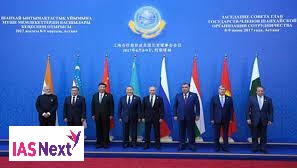CURRENT AFFAIRS
Get the most updated and recent current affair content on Padhaikaro.com
Central Asia Meet
- IAS NEXT, Lucknow
- 29, Jan 2022

Reference News:-
First India-Central Asia Summit was recently hosted by Prime Minister Narendra Modi and attended by the Presidents of Kazakhstan, Kyrgyzstan, Tajikistan, Turkmenistan and Uzbekistan.
- The India-Central Asia summit marked 30 years of diplomatic relations.
Outcomes of the meet – the “Delhi Declaration”:
- India expressed concerns over the lack of land connectivity between India and Central Asia’s land–locked countries.
- The leaders announced plan to build a “Central Asia Centre” in New Delhi.
- They also announced two “Joint Working Groups” (JWGs) on Afghanistan and the Chabahar port project.
- The leaders highlighted the importance of TAPI gas pipeline project that runs from Turkmenistan’s Galknyshk oil fields near Mary (Marv) through Afghanistan and Pakistan to India.
Alternative routes available:
India can reach these land locked countries over sea provided by Iranian ports including the Chabahar port terminal managed by Indian and the International North South Transport Corridor (INSTC) through Bandar Abbas that is promoted by Russia and Iran.
Geo Strategic importance of Central Asia:
- Central Asia is strategically positioned as an access point between Europe and Asia and offers extensive potential for trade, investment, and growth.
- Central Asia is not a part of India’s immediate neighborhood and therefore it doesn’t share borders with India, the issue of connectivity between the two regions becomes of paramount importance.
Geo economic Importance of Central Asia:
The region is richly endowed with natural resources like crude oil, natural gas, gold, copper, aluminum, and iron.
International North – South Transport Corridor:
- India, Iran and Russia had in September 2000 signed the INSTC agreement to build a corridor to provide the shortest multi-model transportation route linking the Indian Ocean and the Persian Gulf to the Caspian Sea via Iran and St Petersburg. ‘
- It is a 7,200-km-long multi-mode network of ship, rail, and road route for moving freight.
- Regions involved: India, Iran, Afghanistan, Azerbaijan, Russia, Central Asia and Europe.
About TAPI Project:
- Inaugurated in 2015.
- It is a natural gas pipeline being developed by the Asian Development Bank.
- The project has run into issues over India-Pakistan tensions and the situation in Afghanistan.
Benefits of this project for India:
- Energy is a growing need, and even if India is able to source energy from other countries like Iran and further afield, both the proximity and abundance of Turkmenistan’s reserves, that rank fourth in the world, will make it an attractive proposition.
- It will bring India much needed energy at competitive pricing, and could easily supply about 15% of India’s projected needs by the time it is completed in the 2020s.
- This project also gives India an opportunity to secure its interest in Central Asia. TAPI’s success will also ensure that India, Pakistan and Afghanistan find ways of cooperating on other issues as well.